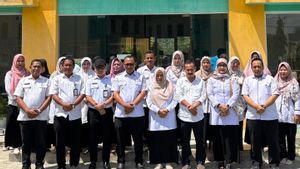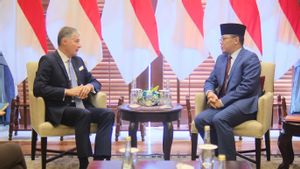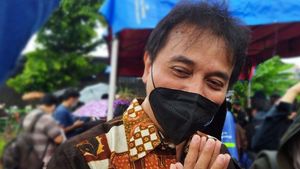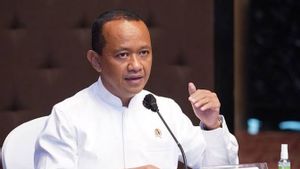The Ombudsman reminded that equitable digitalization transformation in the area is urgent to be carried out after the implementation of the Minister of Home Affairs Regulation (Permendagri) Number 7 of 2024.
"Permendagri Number 7 of 2024 is part of the follow-up to the government's program regarding the importance of digital transformation. This will be evenly distributed if it is not only a central government program but also followed up by the provincial government and even to districts/cities," said Ombudsman Member Hery Susanto quoting Antara.
In a Public Discussion entitled Transformation of Equal Digital Public Services in the Regions: Implementation of the Strategic Regulation of Permendagri Number 7 of 2024 in Jakarta (13/2), he said digitizing public services is a necessity for the community today. Digitization demands changes and shifting ways of life as citizens.
For this reason, he continued, digital transformation is important for all industrial companies and the government sector that rely heavily on systems, technology and information, strategies, and human resources.
Hery said that one way to accelerate digital transformation is to realize excellent public services, namely by building integrated utility network facilities (SJUT).
"Digital transformation, which is about releasing value from business processes and returning them to customers as well as using data and analytics to create new and innovative experiences," he said.
Permendagri Number 7 of 2024 is an amendment to Permendagri Number 19 of 2016 concerning Guidelines for Management of Regional Property, which is the main policy as a direction for local governments in implementing the management of regional property.
He explained that Permendagri Number 7 of 2024 has accommodated the aspirations of telecommunications operators, namely there is already a provision that the amount of the regional property rental adjustment factor (BMD) for telecommunication and informatics infrastructure is 4 percent to 16 percent, so telecommunications operators only pay 4 percent to 16 percent of the BMD rental costs that apply in the area.
In addition, there is an affirmation of the provisions that if there are no integrated utility network facilities (SJUT/ducting/tunel), the amount of the BMD rental adjustment factor for telecommunications and informatics infrastructure is zero percent.
Thus, there is certainty that local governments cannot impose BMD leases if they do not build SJUT/ducting/tunnels that can be used together by telecommunications operators.
Hery supports and hopes from the central government, especially the Ministry of Home Affairs (Kemendagri) to continue to provide literacy and education related to Permendagri Number 7 of 2024, not only to the private sector but also to local governments, so as to accelerate the development of equitable digital transformation throughout Indonesia.
On the same occasion, the Head of the Greater Jakarta Ombudsman Representative Dedy Irsan also supports equitable digital transformation of public services.
"Ready or not ready, like it or not, we have implemented digital transformation, starting during the 2020 COVID-19 pandemic. Adjustments work in various ways, especially online," said Dedy.
Meanwhile, Acting (Plt.) Director General of Regional Finance Development of the Ministry of Home Affairs Horas Maurits Panjaitan explained various provisions for the management of Regional Property after the enactment of Permendagri Number 7 of 2024.
SEE ALSO:
The provisions referred to are the amount of rent, the period of borrowing and using BMD, the calculation of BMD, the performance indicator of BMD management, and various other articles that regulate BMD provisions.
The discussion also came from the Telecommunication Network Operators Association (Apjatel). General Deputy Chairman of Apjatel Ariz Azhar Harahap gave an explanation of the role of fiber optic infrastructure in supporting digital transformation.
According to him, to accelerate digital transformation, it requires the resilience of telecommunications network infrastructure. Therefore, full support from all stakeholders is needed.
Support, he continued, is needed to be able to collaborate actively in supporting telecommunications network infrastructure, starting from the government with its policies, associations, communities, and industry players to be able to connect each other with one vision in advancing Indonesia's digital transformation.
The English, Chinese, Japanese, Arabic, and French versions are automatically generated by the AI. So there may still be inaccuracies in translating, please always see Indonesian as our main language. (system supported by DigitalSiber.id)
















